
Celebrating 75 years
of Women in Rodeo

Florence Youree

Women’s Professional Rodeo Association
Celebrating 75 years of Women in Rodeo
Ann Bleiker
The date was February 28, 1948, and the location was the St. Angelus hotel in the west Texas town of San Angelo. A major move at the time, a determined group of 38 ranch women met with the mission to change the way they were being treated in the male-dominated world of rodeo. With no association, no generalized rules, no organization, the women’s events were going downhill.

St. Angelus Hotel, San Angelo, Texas
Long before Title IX and the women’s liberation movement, these trendsetting ladies banded together to create the very first professional sports association created solely for women by women – the Girls Rodeo Association.
“We were just sick of being cheated and not having rules,” said Betty Barron Dusek, a founding member and the first calf roping director. “We were ready for some organization – honestly just to make everything better.”
The women knew they had an uphill climb to make a go of the association, but it was one they all wanted to try. The group’s primary purpose was to give women legitimate, honest opportunities to compete in all-girl rodeos as well as to establish an alliance with the Rodeo Cowboys Association (which later added the word “Professional”) to host women’s events in conjunction with RCA-sanctioned rodeos. The group drafted and approved rules and regulations and enacted a point system to crown world champions. The women’s rules took effect in May 1948, and GRA board members went to work, persuading rodeo committees and producers to hold women’s contests according to GRA rules.
The Founders
The women were a diverse-but-determined group of ladies that included barrel racers, ropers, roughstock riders and trick riders, but they garnered strength from each other to take a stand in the rodeo world that held the belief that a female’s place was more in the kitchen than in the rodeo arena.
As the Association celebrates its 75th year in 2023, it is believed that four founding members are still alive including Dusek, Dixie Reger Mosley, Mitzi Riley and Fay Ann Horton Leach.
“I remember having an All-Girl rodeo in Amarillo, Texas, in late 1947 and then we all decided to meet in San Angelo in 1948 and the GRA was formed,” Reger Mosley said. “I served as the contract act representative to begin with. I was on the board for five years, and the last year I was there I believe I was the vice president.”
GRA Founding Members in 1948
Officers
Margaret Owens Montgomery – President
Dude Barton – Vice President
Mrs. Katherine Pearson – Secretary-Treasurer
Sug Owens Bloxom – Publicity Agent
Jackie Worthington – Bareback Riding Director
Marlene Harlan – Bull Riding Director
Betty Barron Dusek – Calf Roping Director
Vivian White – Saddle Bronc Director
Blanche Altizer Smith – Team Tying/Cow Milking Director
Fern Sawyer – Cutting Horse Director
Helen Barron Green – Flag Race/Barrel Race/Line Reining Director
Dixie Reger – Contract Representative
Bebe Green, Mary Green, Ann Young, Mrs. Ted Powers, Mrs. Curtis Barron, Izora Young, June Probst, Virginia Probst, Nancy Bragg, Nancy Binford, Thena Mae Farr, Sissy Allen, Mitzi Lucas Riley, Tad Lucas, Ora Altizer Quigg, Sally Taylor, Sally Hardin, Manuelita Mitchell, Fay Ann Horton, Doris Reed, Mary Ellen Sellers, Josephine Willis, Jesse Myers, Iris Dorsett, Frances Gist and Frances Wegg
Rodeo committees were given the option of choosing which event they would hold (bronc riding, cutting or barrel racing) in those early years, and most picked barrel racing. In its inaugural year, the GRA had 74 members and conducted 60 events with a total payout of $29,000. Two years later the GRA had more than 100 members.
Not only was Margaret Owens Montgomery the first president of the Association, but at season end, she was also named the first world champion barrel racer of the GRA. In fact, she became the first GRA member to win three world titles, adding the all-around and cutting titles in the first year of the Association.
On January 30, 1955, another major advancement of the young Association came when GRA President Jackie Worthington and RCA President Bill Linderman signed an agreement stating that the RCA would strongly urge rodeo committees to have a GRA-approved barrel race and that the RCA would not complete a contract or agreement with any barrel racing association other than the GRA.
Championship Form
The year 1959 marked another milestone in the rodeo history books when the RCA Board of Directors made the great Casey Tibbs’ idea of hosting a National Finals Rodeo at the end of the season a reality. This became known as the “Super Bowl of Rodeo” in an event that pitted the top 15 contestants against the best livestock in the world. While team roping, steer roping and barrel racing were not part of the overall NFR held that first year in Dallas, those three events took part in their own NFR in Clayton, New Mexico.

Billie McBride competing at first NFR for barrel racers in Clayton, N.M., 1959. Photo by James Cathey
Jane Mayo won the first of her three consecutive world titles in three locations. While Clayton hosted the first NFR for the barrel racers, the 1960 NFR was contested in Scottsdale, Arizona, alongside the team roping, and the 1961 finale was in Santa Maria, California. In 1962, the GRA decided to stand its ground and hold its finals in Dallas without any RCA events at all. The WPRA conducted the NFR barrel race in Dallas through 1965; the finals for the 1966 rodeo season were actually held in Fort Worth during their Stock Show and Rodeo the beginning of 1967.
In December 1967, thanks to the efforts of Florence Youree, the barrel race was featured at the main NFR. Youree originally met with Stanley Draper of the Oklahoma City Chamber of Commerce in 1965 to discuss the possibility but it wasn’t until a follow-up meeting with her, Draper and the NFR General Manager Clem McSpadden that it was confirmed. During that meeting, Draper and McSpadden decided to include the women, and Draper agreed to put up $1,000 prize money the first year. In 1968, Draper proposed that barrel racing be held at the NFR as long as the NFR was in Oklahoma City with a minimum purse of $2,500. Ann Lewis was crowned posthumously the GRA world champion in 1968 at the young age of 10, marking the youngest world champion in the Association’s history.
Although barrel racing was now included as an event at the NFR, the women were still not paid the same as all the men’s events. That all finally changed in 1998, when, for the first time, barrel racing, as well as the PRCA’s team roping, was paid out the same amount as all the other events at the NFR in Las Vegas. This was also the year that the Association celebrated 50 years.
Making Their Voice Heard
In 1980, the GRA Board of Directors took a stand reminiscent of the original founders requiring all rodeos (beginning with the 1981 rodeo season) to offer at least half the amount they offered for the lowest paying men’s event, which, at the time, was team roping. Within five years, all rodeos would have to pay equal money to be approved. Of the 490 approved rodeos by the PRCA, 239 offered equal money, 175 offered half and 76 rodeos didn’t include barrel racing.

Making Their Voice Heard
Jimmie Munroe and Wanda Bush Harper being recognized
for their efforts for equal money
Wanda Bush was on the board at the time. She had served for many years prior to that time but came back on the board at the request of GRA President Jimmie Munroe to help with the push for equal money.
“I asked Wanda to come back and she really was such an asset,” said Munroe. “She knew the committees, and they knew her. She was so respected.”
Munroe said with a chuckle that in board discussions leading to the vote for equal money, Bush had been a realist about what could happen, a wisdom born no doubt from time spent struggling in the 1950s and 1960s just to get a barrel race approved in many venues.
“I remember Wanda saying, ‘Girls, I don’t know if this is going to go the way you want it to,’” Munroe said with a laugh. Everyone rolled up their sleeves to get it done.
In 1982, the GRA changed its name to the Women’s Professional Rodeo Association, which continues to stand for the same ideals it stood for in 1948 when it was first conceived as a tool to help like-minded women achieve their common goals.
As approved in 1980 by the 1985 rodeo season, the WPRA Board of Directors refused to approve any PRCA rodeo not offering equal money (as compared to the lowest paying men’s event) to the barrel racing. In the end, 98 percent of the 601 PRCA-approved rodeos met that requirement.

Historic Milestone
Only three barrel racers have ever worn the #1 back number at the NFR.
(from left to right: Charmayne James, Sherry Cervi, Mary Burger)
Second Featured Event
While barrel racing has taken the lead over the last 75 years as being WPRA’s primary event contested at PRCA-sanctioned rodeos, women’s breakaway roping was introduced in this new context in 2017.
While the first WPRA World Champion Breakaway Roper was crowned in 1974, it wasn’t until 2017 that the WPRA made a concentrated effort to expand the opportunities for roping members by introducing the event at PRCA-sanctioned events. The ropers made their first mark in the Columbia River Circuit (which includes the states of Oregon and Washington) with the hope this small spark would light a bigger fire within the industry. They introduced breakaway into iconic rodeos like Ellensburg, Washington, and Pendleton, Oregon, and by 2019, the WPRA was sanctioning up to 30 breakaway roping events at PRCA rodeos.
In 2020 in partnership with the PRCA, the WPRA agreed to open it up to any sanctioned rodeo wanting to add breakaway roping to its list of events bringing a new spotlight to the event as never before. The WPRA started keeping standings for breakaway events held at PRCA-sanctioned rodeos versus those events co-approved by the WPRA. As a result, in 2020 the WPRA World Champion Breakaway Roper was determined by the ProRodeo standings instead of the traditional WPRA co-approved standings. As a result of the WPRA and PRCA partnership, breakaway ropers now have more opportunities, and the two Associations are working to make the event more “rodeo mainstream.”
Much like the barrel racers had to work toward equal money, the breakaway ropers are now going through that process as well. While rodeos like Fort Worth and a handful of others offer equal money, the vast majority do not and as the WPRA embarks on their 75th year there are still others that have yet to add breakaway roping as a featured event during their rodeo.

2020 Top 15 Breakaway Ropers at Wrangler National Finals Breakaway Roping (NFBR).
The Future – Not Content Yet
While the WPRA has come a long way since 1948, there are still new challenges that face the Association in 2023.
“I’m proud of where rodeo has gone and the success of the WPRA,” Dusek said. “I always wanted to see more ropings, and I sure see a lot of them that pay darn good for the girls. I think it just keeps getting better. If you looked back to what we made when we were doing it, you would wonder what we were thinking. I’m amazed at all the advancements, and I don’t think any of the founding members ever dreamed it would be this good.”
From the very beginning, women have stuck their necks out for equality with varying degrees of success. In the early days of rodeo, some cowtowns recognized the ability women possessed and ditched the beauty pageants typically held for cowgirls. Instead, they held contests like bronc riding, cutting or barrel racing, but those events were few and far between. From the early days of competing for a cigarette case to competing for thousands of dollars of added money and incentive programs provided by the sponsorships secured by the WPRA over the last several decades the face of women in rodeo has certainly changed. Today’s contestants are breaking records, influencing history, and paving a bright future for the future cowgirls.
The benefits the contestants receive today would not have been imaginable had it not been for a courageous band of women who roughed it out in the early days of rodeo. In addition, that courage would have been fruitless if it weren’t for the leaders who have stepped forward to accept the WPRA’s baton year after year. Their refusal to take “no” for an answer serves to inspire future generations to recognize and then work to harness the potential of women in rodeo and uphold the iconic legacy of the West.
When it comes to the cowgirls of the WPRA, some barriers are simply meant to be broken.
LATEST NEWS
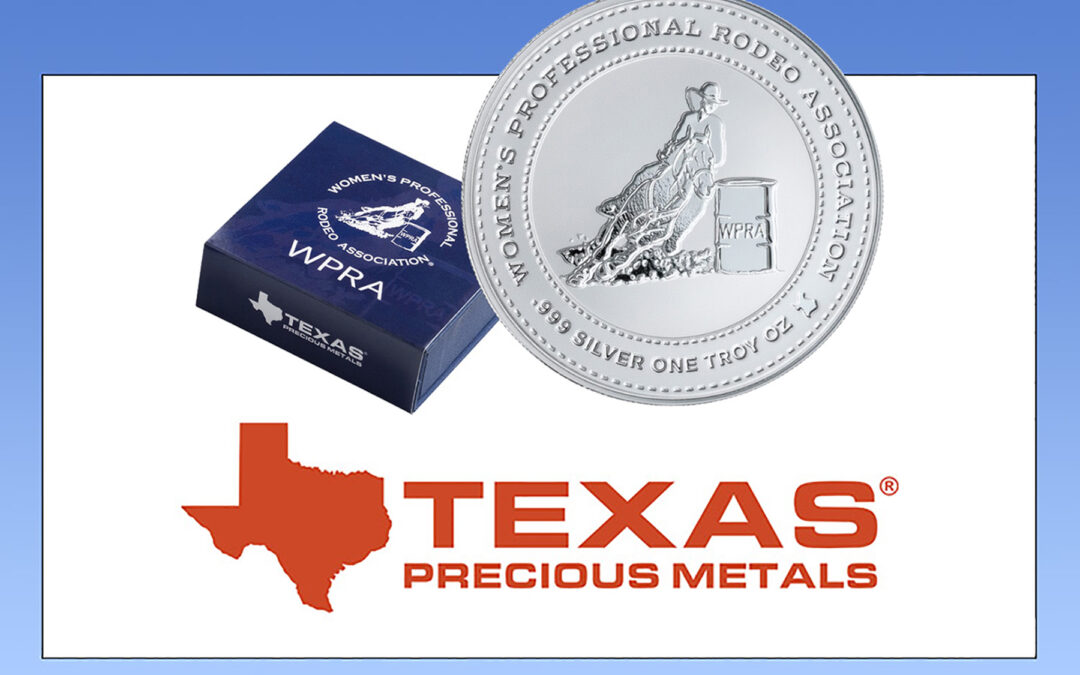
Texas Precious Metals Joins WPRA Corporate Partner Family
Nominations for Outstanding Committee Woman of the Year WPRA NEWS Texas Precious Metals Joins WPRA Corporate Partner Family COLORADO SPRINGS, COLORADO – The WPRA is excited to announce Texas Precious Metals as our official precious metals partner. Through this...
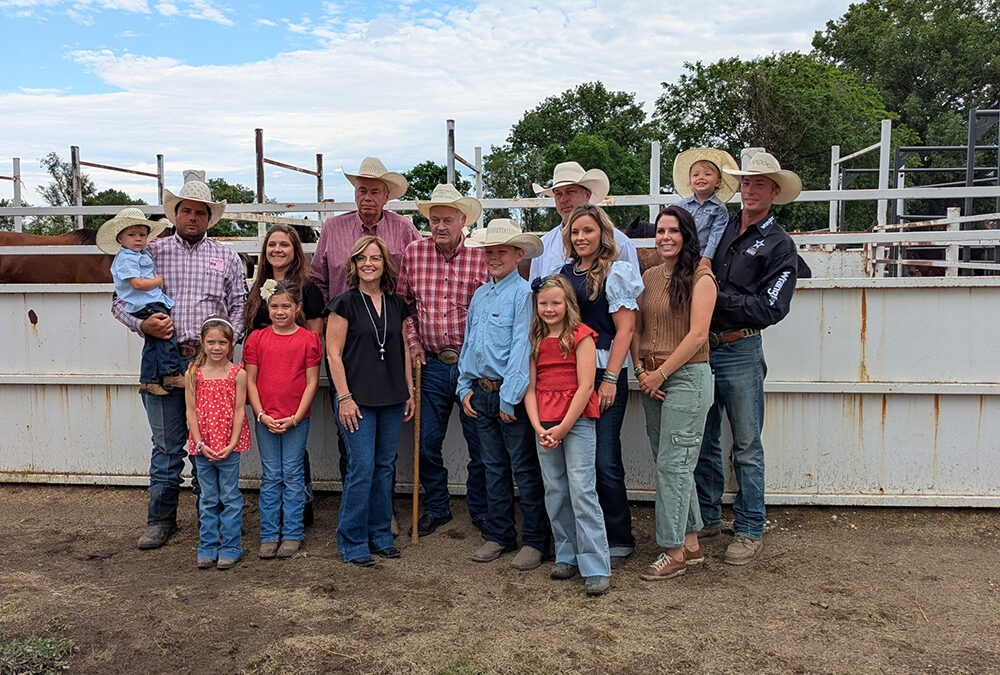
Sutton Rodeo Co. Celebrates 100 Years in the Rodeo Business
Nominations for Outstanding Committee Woman of the Year CENTENNIAL CELEBRATION Sutton Rodeo Co. Celebrates 100 Years in the Rodeo Business By Ruth Nicolaus, originally printed in Tri-State Livestock News Deep in the heart of South Dakota lives one of rodeo’s premier...
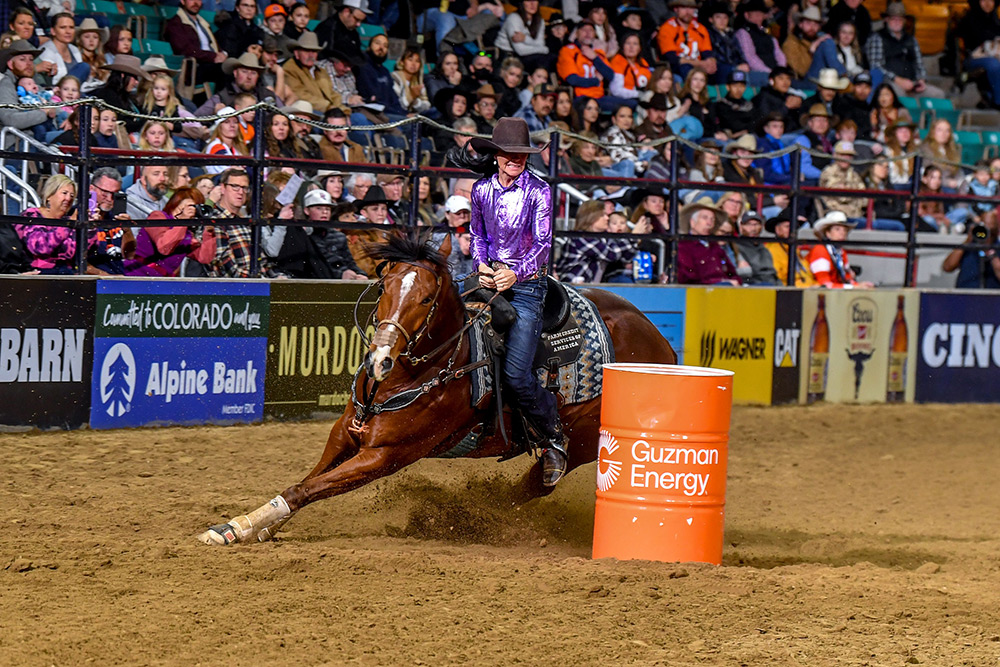
Gunderson Gets Big Win in Denver
Nominations for Outstanding Committee Woman of the Year RODEO NEWS Gunderson Gets Big Win in Denver By Ann Bleiker Heidi Gunderson is a regular name in the Futurity world standings but after a big win in Denver her name will be amongst the top in the early 2026...
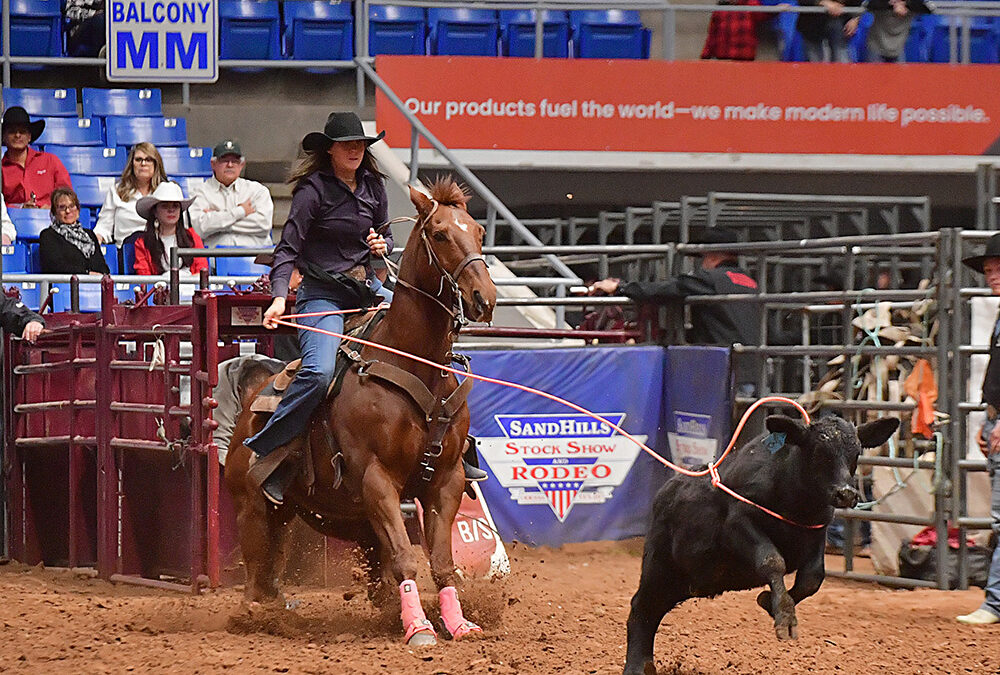
Breakaway Roper Dowell Leads Odessa With a 1.5 Second Run
Nominations for Outstanding Committee Woman of the Year RODEO NEWS Breakaway Roper Dowell Leads Odessa With a 1.5 Second Run By Ann Bleiker The official start of the 2026 rodeo season was back in October, but many consider January the real start to the season with big...
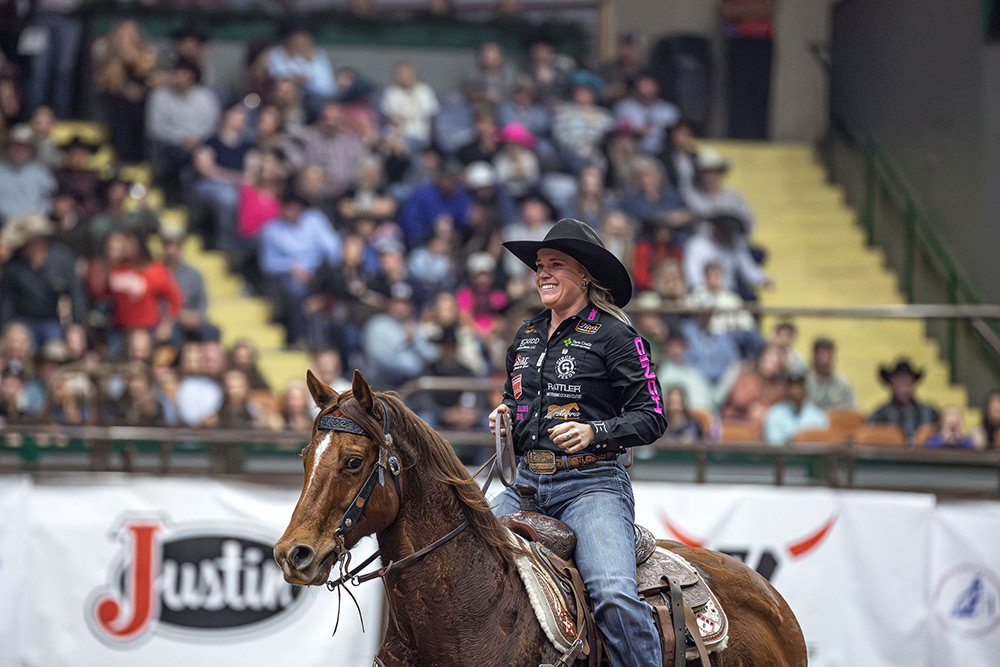
Munsell Wins First World Title in Breakaway Roping, George Ropes Her First Average Title
Nominations for Outstanding Committee Woman of the Year NFBR 2025 Munsell Wins First World Title in Breakaway Roping, George Ropes Her First Average Title By Ann Bleiker FORT WORTH, TEXAS – The 2025 Wrangler National Finals Breakaway Roping presented by Tito’s...
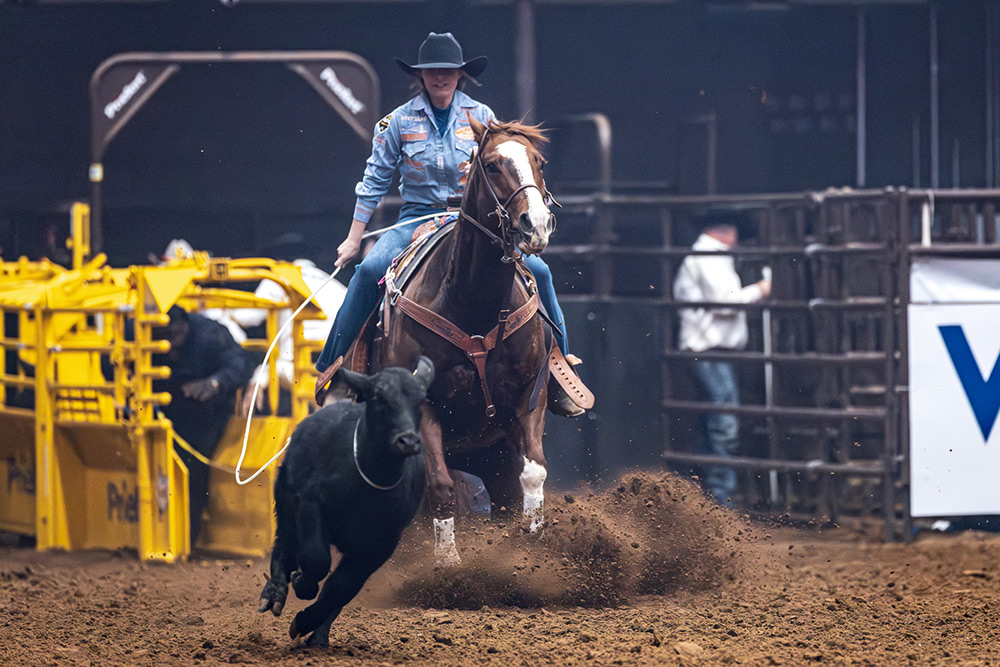
Williams Dominates on First Night of 2025 Wrangler National Finals Breakaway Roping in Ft. Worth
Nominations for Outstanding Committee Woman of the Year NFBR 2025 Williams Dominates on First Night of 2025 Wrangler National Finals Breakaway Roping in Ft. Worth By Ann Bleiker FORT WORTH, TEXAS – The 2025 Wrangler National Finals Breakaway Roping presented by Tito’s...
(719) 447-4627
(719) 447-4631 (fax)
431 South Cascade
Colorado Springs, CO 80903
DIRECTIONS
(719) 447-4627 | (719) 447-4631 (fax)
WORLD CHAMPIONSHIP BARREL RACING and WORLD CHAMPIONSHIP BREAKAWAY ROPING — Where the Elite Compete®
WORLD CHAMPIONSHIP
BARREL RACING
and
WORLD CHAMPIONSHIP
BREAKAWAY ROPING
Where the Elite Compete®


